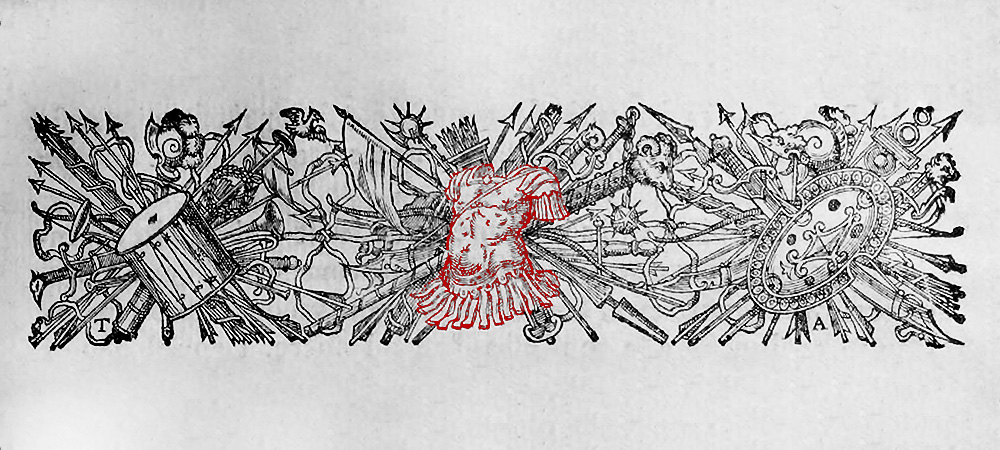Notebook
If you would like to browse past essays from the Notebook, you can see the big chronological list in the Archive or you can browse through the list of Tags. In this notebook you can read my attempts to work out my ideas in a public space before they make it into the longer and more polished Essays. If you are interested in receiving such writing along with my favorite art of the week straight to your inbox, you can join our cultural cadre by subsribing to the Newsletter.
Love as the Gift of Self
In the last essay, I explored the meaning of the word ψυχή in the paradoxical saying of Jesus that the man who seeks to save his ψυχή will end up losing it while the man who loses it will end up finding it. Although martyrdom is certainly a high calling, I argued that this saying means more than the sacrifice of one’s life. It means the sacrifice of one’s very self. Giving oneself, giving one’s innermost core, is paradoxically the best way to look after oneself and cause that core to flourish.
In this essay, we will continue our investigation by examining another set of parallel verses that use the same difficult word, ψυχή, and I will argue that the gift of one’s ψυχή is the very essence of love. Many people are capable of rattling off the definition of love as “willing the good of another,” but this understanding of love goes deeper; it understands love as a radical gift of one’s very person.
He Who Seeks to Save His Life
Of all the many difficult sayings of Jesus, one in particular troubles my soul. Versions of it appear in all four gospels (Matthew 16:24–27, Mark 8:34–37, Luke 8:23–25, John 12:24–25), and I have been able to quote it since childhood. After years of meditation, however, I’m less and less confident that I know what Jesus means. For the sake of completeness, I will give both the full Greek and my own translation of Matthew’s version, which seems to be the most basic, but I will leave untranslated the critical word ψυχή (psyche) for reasons that will soon become apparent. I have indicated the variant readings found in Luke and Mark with footnotes and also included all the source passages in full in an appendix, although the only variant that will really matter for our purposes is the interesting alternative rendering of the last verse found in Luke and the very different version in John.
Escaping Advertisement
Several weeks ago, I wrote a rather gloomy essay about the feeling of being trapped in the contemporary marketing machine. After a recent conversation, however, I started to realized just how good I have it and just how practically possible it is to emancipate oneself from the tyranny of the attention economy.
In this recent conversation, both my wife and I realize how unusual it is that neither of us had watched a single advertisement for the upcoming election—not one. We’ve seen a few bumper stickers and yard signs while we are driving, of course, but we haven’t watched a single video or listened to a single audio clip.
This made us realize that it has been months, at least, since we have seen any kind of video commercial and several years since advertising jingles were regularly stuck in our heads. I have no idea what flavors of Doritos are current or what demonstrable improvements have been made by Tide over its competitors. I have not been able to eliminate the billboards from my eyesight as I drive down the highway—much to my resentment—but I admit that if this is the most annoying intrusion into the sanctuary of my daily aesthetic experience, I’m doing fairly well.
Levels of Knowledge
In a previous essay, I suggested that the difference between sensibles and intelligibles is not so much a matter of the material versus the immaterial but a matter of distinct modes of consciousness by which we access different kinds of reality. We grasp sensibles with our senses, but we grasp intelligibles with our intelligence. According to Plato, this leads to a categorical distinction between the kinds of knowledge that we can have of these different kinds of reality. We need to look closely at the Greek vocabulary here and the standard translations of these words because students often misunderstand this distinction.
Alain Delon and the Beauty of Evil
A few months ago, I went to a screening of Jean-Pierre Melville’s classic Le Samuraï (1967), starring a young Alain Delon. No one could have known at the time of the screening that Delon would pass away just a few weeks later on the 18th of August at the age of 88. Since then, I have watched several of his films, and collectively they trouble my soul with many questions about the relationship between evil and beauty. It’s beginning to disturb my Platonic sleep.

Being and Becoming
Previously, we have discussed the differences between sensibles and intelligibles, using the example of Bill Evans’ “Waltz for Debbie.” Individual performances of this song are “sensibles,” while the song itself, the deep structure that remains the same across multiple performances, is an “intelligible.” In the last essay, we examined the way that Plato uses the terms εἶδος and ἴδεα to refer to this shared structure or “character” that undergirds similarity across differences, and we ended by puzzling about the mode of existence that such structures might have if they are not physical objects that we can poke or kick. To answer this puzzle, let’s begin with the kind of geometric example that Plato uses in the Meno and the Phaedo, before attempting to tackle the thornier issues raised by “Waltz for Debbie.”
Reverence (a Poem)
Reflects the dirty window’s cloudy sun.
The candle wax a blue of robin’s egg
Or daylight sky that softens into dusk.
The artless colors catch and hold the eye,
A pair unsought like sudden lovers wed.
A pressure dark, a force unnamed, a tide
That pulls and pulls is pulling here again.
One calls it “Beauty” true enough,
But saying so will make the moment said,
And so disturb the dust that settles here
Like gray upon the head or wisdom on
The soul that dare not speak of sacred things.
It’s better not to name the thing at all,
To leave the world to thicken in its bones.
The light itself then alters in its way,
No brighter than the light that was before,
But now with weight like paint that’s brushed on strong.
All grows and grows and crests and goes away,
And if it goes unlooked at then it goes,
Unloved, unknown, and so without its gift,
And poorer I would be until again,
Some other window’s light some other day,
Reveals the secret to a waiting eye.
Eidos in the Meno and Euthyphro
In the last essay, we discussed the difficulties with the Greek words that are often translated as “form” and why we should resist the temptation to reify “the Forms” into a class of super-objects in a distant heaven somewhere. Instead, I argued that we could translate the synonyms εἶδος (eidos) and ἰδέα (idea) as the “look” or “character” of something that allows us to mentally grasp what something is, i.e. its peculiar style of being.
I mentioned that, despite so much talk about “Plato’s Theory of the Forms,” he rarely uses these words and he never straight-forwardly gives us a theory in any dialogue. Nevertheless, he does occasionally use these terms, and in this essay, we will examine two critical passages from relatively early dialogues in which he does so.
The Language of the Forms
In the last two essays, we have discussed the patterns or structures that our minds latch onto and that we have called “the intelligibles.” Those familiar with Platonism will by now have noticed that I have studiously avoided using the term “Form.” When we speak of “Plato’s Theory of the Forms,” students often have some mixed up ideas about what this means. They often imagine perfect versions of things here on earth floating off in some kind of heaven. Sometimes I find out that this is what they were explicitly taught by a non-specialist professor in a freshmen philosophy class. When they do this, they are imagining Forms as basically things, the same kind of object as ordinary sensible objects, just super-sized and shiny. The very way that scholars tend to talk about “the Forms” only reinforces this tendency to thingify what are emphatically not things.
Despite all the talk of “Plato’s Theory of the Forms,” Plato himself rarely uses any of the Greek words that mean “form,” and there are no passages in any of the dialogues in which he straight-forwardly sets out a theory. Confusingly, there are three different words that are usually translated as “form,” and Plato does not regularly use any of them in a technical sense.
Sensibles and Intelligibles
In last week’s essay, we thought about the way that one and the same song can be performed in different ways on many different occasions. I advanced the paradoxical claim that the song itself, the thing that is one in all its many performances, is not something we hear with our ears but rather something we grasp with our minds. This week, we will add some nuance to this claim and introduce some technical vocabulary from the Platonic tradition.
Let us return to the idea that a song can be written down in the form of sheet music, read by a skilled musician, and recognized without any sounds being made at all. The song itself, then, is a kind of structure or pattern that we can understand or think about even without hearing it played. Conversely, listening to a particular playing of the song necessarily involves the vibration of the air over a particular span of time in a particular place. Even if I play exactly the same performance of the song over again by hitting the repeat button on my stereo, the second play-through will be distinct from the first and involve different volumes of air being moved through my ear canal at a different time.










